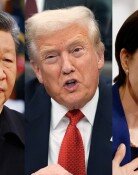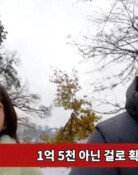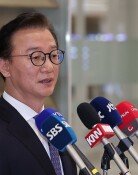Pres. Park needs to give more autonomy to Cabinet memebers
Pres. Park needs to give more autonomy to Cabinet memebers
Posted February. 24, 2015 04:19,
The Park Geun-hye administration will mark the second anniversary of her inauguration on Feb. 25. President Parks approval ratings for her job performance, which was around late 50 percent up to early 60 percent a year ago, has dropped to early 30 percent. President Park must have a sense of crisis as her concrete supporters are now departing from her.
Regardless of ruling or opposition parties, politicians say that the common request from the public is to revive economy for ordinary people. Economic revival is one of the goals that President Park puts highest priority. The president presented "economic recovery" as one of the three goals of state affairs in her inaugural speech, reminding of the ruling of her father, late former President Park Chung-hee. In the second year of her term in office, President Park unveiled a three-year plan for economic reform. Over the past two years under the Park administration, economic growth rate has reached around 3 percent. The Asias fourth largest economy has achieved the biggest-ever export volume and trade surplus, and 1 trillion U.S. dollars in trade for two consecutive years. However, ordinary people still feel that the economy remains in the lowest point. It is afraid that Korea may fall into a deflation that brings forth a long-term economic slump. Another alarming sign is the youth unemployment rate at 9 percent. The youth unemployment rate is quite serious to an extent that over a million of young people are looking for employment.
The governments ability for risk management has been under criticism when the deadly sunken ferry Sewol accident occurred in April 2014. Although such malaise has been festered through the previous administrations, the Sewol ferry accident revealed the malady of corruption among public officials, also known as Pub-fia, public officials plus mafia, in our society. President Park reorganized administrative structures and replaced personnels, but safety accidents continuously occurred and the governments way to handle such accidents has not been changed much. The last straw to the Park administration was the so-called "memogate scandal," which involved leaked presidential documents alleging that a former presidential aide attempted to meddle in state affairs. As the scandal was connected to personnel appointment issues, it has pushed disapproval against the presidents way to perform state affairs to the highest point.
President Parks "normalization of abnormal issues" is one of the core foundations for the national reform. It has produced tangible results in rectifying and addressing corruption and irrationality among the public organizations. The president made her commitment for structural reform in four major areas: public sector, labor, finance and education. However, it is hard to put trust in the government given the administrations low approval ratings and disordered management of state affairs, evidenced by controversy over the year-end tax settlement and reversal of reform in the public health insurance co-pay system. Even though the nations finance is not in good shape, the administration is not paying attention to the restructuring of the welfare system, only insisting "welfare without tax increase." Despite achievement in the diplomacy, relations with Japan is still strained. While chanting "Jackpot by unification," there has been little progress in the inter-Korean relationship. Ideals of the Park administration must be harmonized with the reality.
President Parks job performing style gives impression that she wants to lead everything by herself. In that way, it is hard to produce fruitful results. Also it is highly likely to draw complaints to the president. At this point when her administration embarks a journey in the third year after passing the second year milestone, President Park must show commitment to change herself first. The president must give autonomy to prime minister and ministers, and divide authorities and responsibilities. President Park must change her way of managing state affairs, which is closed and stiff, into a way to enhance communication, sympathy and flexibility. Starting from appointment of her new presidential chief of staff, President Park needs to show changed attitude different from the past.







